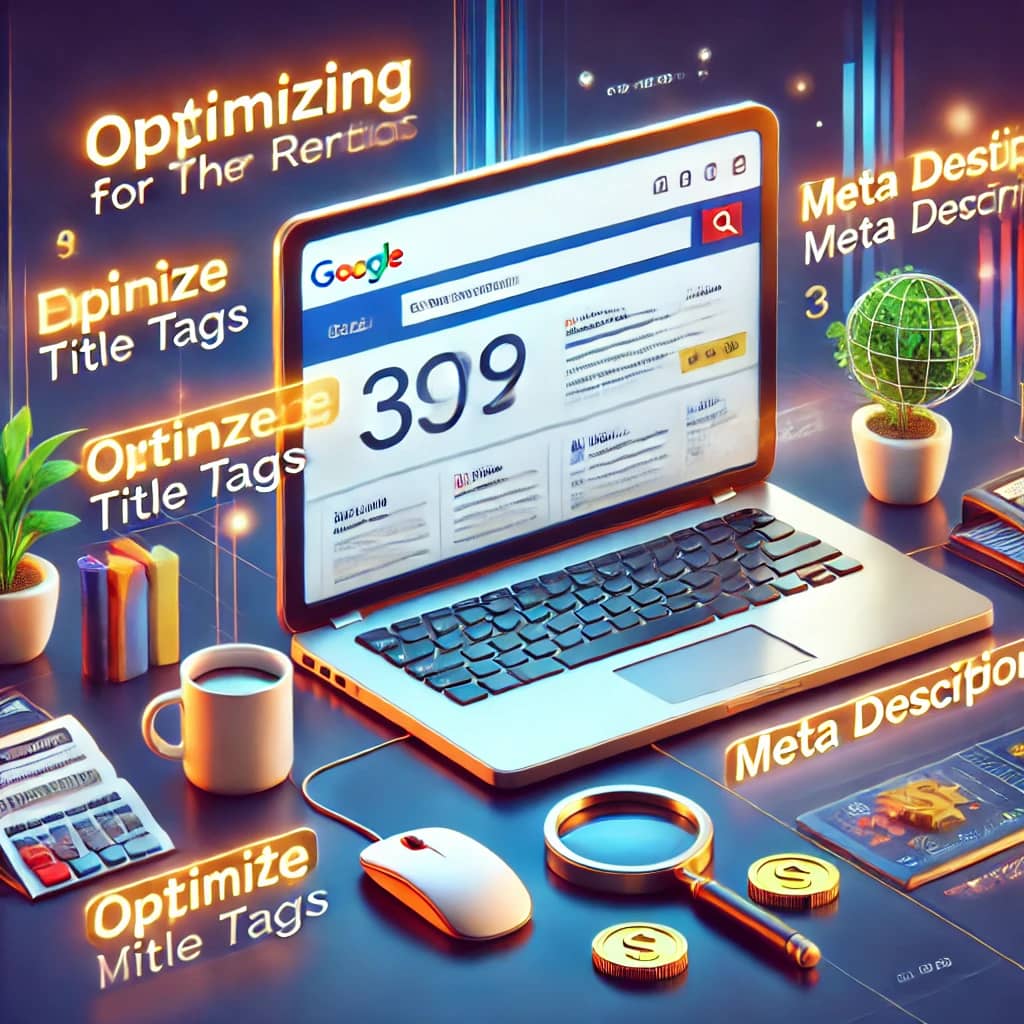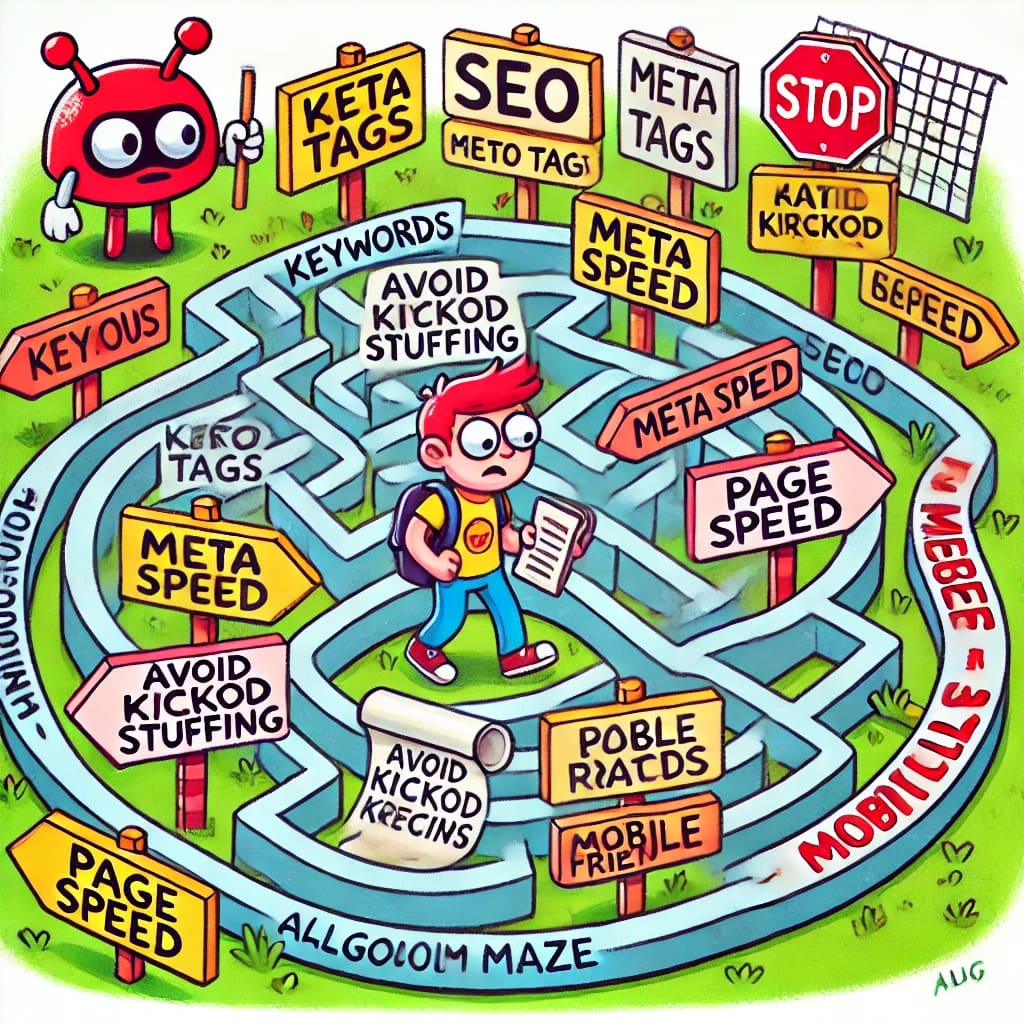
5 tips for SEO – How to rank on Google
How to rank on search engines and on google in particular is tougher than before.
Ranking on search engines, especially Google, is more challenging than ever. With the increasing competition and constant algorithm updates, having a well-thought-out SEO strategy is crucial. Gone are the days when you could leave your online presence to chance. Planning and executing a robust SEO strategy is now a necessity. Ensure your website is fully operational, complete with at least five quality blog posts before you dive into the SEO adventure. Once you are prepared, consider the following detailed tips to help you rank higher on Google.
1. Utilize Free SEO Tools at Your Disposal
One of the most significant advantages you have as an SEO practitioner is access to a plethora of free tools designed to help you optimize your site. Google Webmaster Tools and Google Search Console are two of the most powerful tools available. They provide insights into your website’s performance, helping you identify and fix issues that might be affecting your ranking.
- Google Search Console: This tool allows you to monitor your website’s performance in the Google search index. You can use it to check for indexing errors, submit sitemaps, and see how Google views your site.
- Bing Webmaster Tools: Similar to Google’s tool, Bing’s version offers insights into your website’s presence on Bing. It helps you optimize your site for better performance on this search engine as well.
- Google Analytics: While not strictly an SEO tool, Google Analytics is invaluable for tracking visitor behavior. Understanding how users interact with your site can help you make informed decisions about content and structure.
- All in One SEO Plugin: If you’re using WordPress, this plugin is a must-have. It simplifies many aspects of SEO, from creating XML sitemaps to optimizing meta tags.
These tools are free and provide a wealth of information that can significantly improve your SEO efforts. Regularly check and analyze the data they provide to keep your website in top shape.
Google webmaster
Google webmasters tools
Bing webmaster toolbox
All in one SEO plugin

2. Focus on ONE Niche
Choosing a niche and sticking to it is vital for SEO success. When your content is focused on a specific topic, it becomes easier to optimize your site for relevant keywords. This not only helps search engines understand what your site is about but also makes you a trusted authority in that area.
- Keyword Research: Use tools like Google Keyword Planner, Ahrefs, or SEMrush to find keywords related to your niche. Focus on long-tail keywords, which are less competitive and more targeted.
- Content Strategy: Develop a content calendar that revolves around your niche. Create blog posts, videos, and infographics that provide value to your audience. Consistency is key.
- Quality Over Quantity: It’s better to have a few well-researched, high-quality articles than numerous low-quality ones. High-quality content is more likely to be shared and linked to, which improves your SEO.
By concentrating on one niche, you make it easier for search engines to classify your site and for users to find the information they are looking for.

3. Optimize for the Marketplace
An optimized title tag and meta description are crucial for improving your visibility on search engines. These elements are what users see on the search engine results page (SERP), and they play a significant role in whether or not a user clicks on your link.
- Title Tag: This should be clear, concise, and include your main keyword. Keep it under 60 characters to ensure it displays properly in the SERP.
- Meta Description: This should provide a brief summary of your content and include relevant keywords. Aim for around 160 characters. Make it engaging to encourage clicks.
- URL Structure: Use clean, descriptive URLs that include your primary keywords. Avoid long, convoluted URLs that are hard to read.
Creating compelling title tags and meta descriptions can significantly improve your click-through rate (CTR), which is a factor in Google’s ranking algorithm.

4. Work on the long term
SEO is not a one-time task but an ongoing process. To maintain and improve your rankings, you need to be consistent and persistent in your efforts.
- Regular Updates: Search engines favor fresh content. Regularly update your blog with new articles, and revisit older content to ensure it remains relevant and accurate.
- Engagement: Engage with your audience through comments, social media, and email newsletters. The more engagement your content gets, the better it will rank.
- Backlinks: Build high-quality backlinks from reputable websites. Guest posting, collaborations, and participating in industry forums can help you earn these links.
- Technical SEO: Regularly audit your site for technical issues like broken links, slow page speeds, and mobile-friendliness. Tools like Screaming Frog can help with this.
By focusing on long-term strategies, you can build a strong foundation that ensures sustained SEO success.

5. Use related keywords in your article
Incorporating related keywords, also known as LSI (Latent Semantic Indexing) keywords, into your articles can improve your SEO by providing context and helping search engines understand the topic of your content better.
- Keyword Variation: Don’t just repeat your main keyword. Use synonyms and related terms to make your content more comprehensive and natural-sounding.
- Semantic Search: Google uses semantic search to understand the meaning behind search queries. By using related keywords, you can align your content with this approach.
- Content Relevance: Ensure your content thoroughly covers the topic by addressing different aspects and answering potential questions. This makes it more useful to users and more likely to rank.
Using related keywords effectively can improve the relevance and quality of your content, leading to higher rankings and more traffic.

Conclusion
Ranking on Google requires a well-planned and executed SEO strategy. By utilizing free SEO tools, focusing on a specific niche, optimizing your title tags and meta descriptions, working on long-term strategies, and using related keywords in your content, you can significantly improve your chances of ranking higher. Remember, SEO is a marathon, not a sprint. Consistency, quality, and engagement are key to achieving and maintaining top rankings.
To your success!
Clear and simple is my motto
More easy tutorials and SEO checker
Look at more trainings on the wealthy affiliate
A keywords checker
Happy optimizing!🚀🎶

Invest in your future & learn
Learn affiliate marketing & build your own website.
Heads up! Make sure you sign up using my referral link to get access to my personal coaching and all features.
👉 Sign Up
Q&A
What are related keywords
Related keywords are terms or phrases that are associated with a primary keyword or topic. They can help broaden the scope of search engine optimization (SEO) efforts, content creation, and audience targeting. Here are a few types of related keywords:
Synonyms: Words with similar meanings (e.g., fast and quick).
Long-tail keywords: More specific phrases that typically have lower search volume but higher conversion potential (e.g., fast running shoes instead of just shoes).
LSI Keywords: Latent Semantic Indexing keywords that are conceptually related to the main keyword (e.g., running, jogging, and marathon for running shoes).
Questions: Common queries related to the main keyword (e.g., best running shoes for flat feet).
Related topics: Broader categories or themes that encompass the main keyword (e.g., fitness, exercise, athletics).
Competitor keywords: Terms that other websites targeting similar audiences are using.
If you have a specific keyword in mind, I can help you identify some related keywords! 😜





I have a mini niche site that I run and I was looking for ways to improve my SERPs results. I really liked the simplicity of your article and after reading your article, I feel like I know what to do and improve on! Thanks for writing this article and looking forward to your next!
Thank you so much for your kind words! I’m glad you found the article helpful.
For a mini niche site, focusing on highly specific keywords and building content around ultra-targeted topics can be incredibly effective for improving your SERP rankings. Here are a few additional SEO tips tailored to mini niches:
Long-Tail Keywords: Since mini niches often have less competition, targeting long-tail keywords with lower search volumes can help you rank faster. Use tools like Ahrefs or SEMrush to find these opportunities.
Content Clusters: Create clusters of related content around your main niche topic. This not only enhances topical relevance but also helps search engines understand the focus of your site better, leading to higher rankings.
High-Quality Backlinks: Focus on building backlinks from websites that are relevant to your specific niche. Even a few high-quality backlinks from niche-relevant sites can make a big difference.
User Experience (UX): Make sure your site loads quickly, is mobile-friendly, and provides a great user experience. Google prioritizes sites that offer a good UX, which can be especially advantageous in mini niches where larger competitors may not be as agile.
Local SEO: If applicable, optimize for local search by creating location-specific content and claiming your Google My Business listing. This is especially effective if your niche has a local or regional focus.
I’m excited to hear about your journey with your mini niche site and look forward to sharing more tips in the future!
Feel free to reach out if you have any more questions or need further guidance!